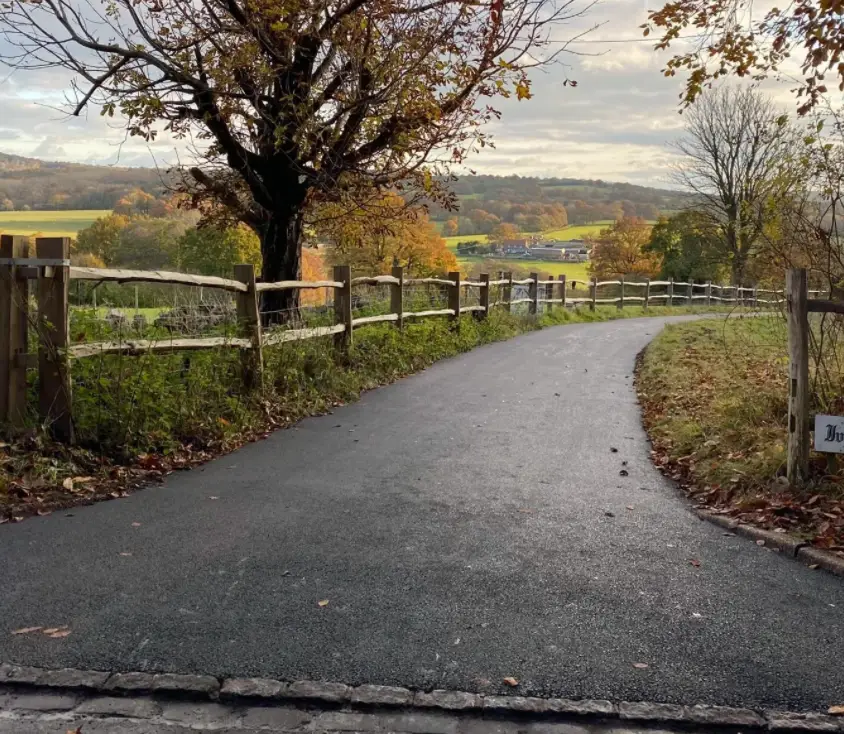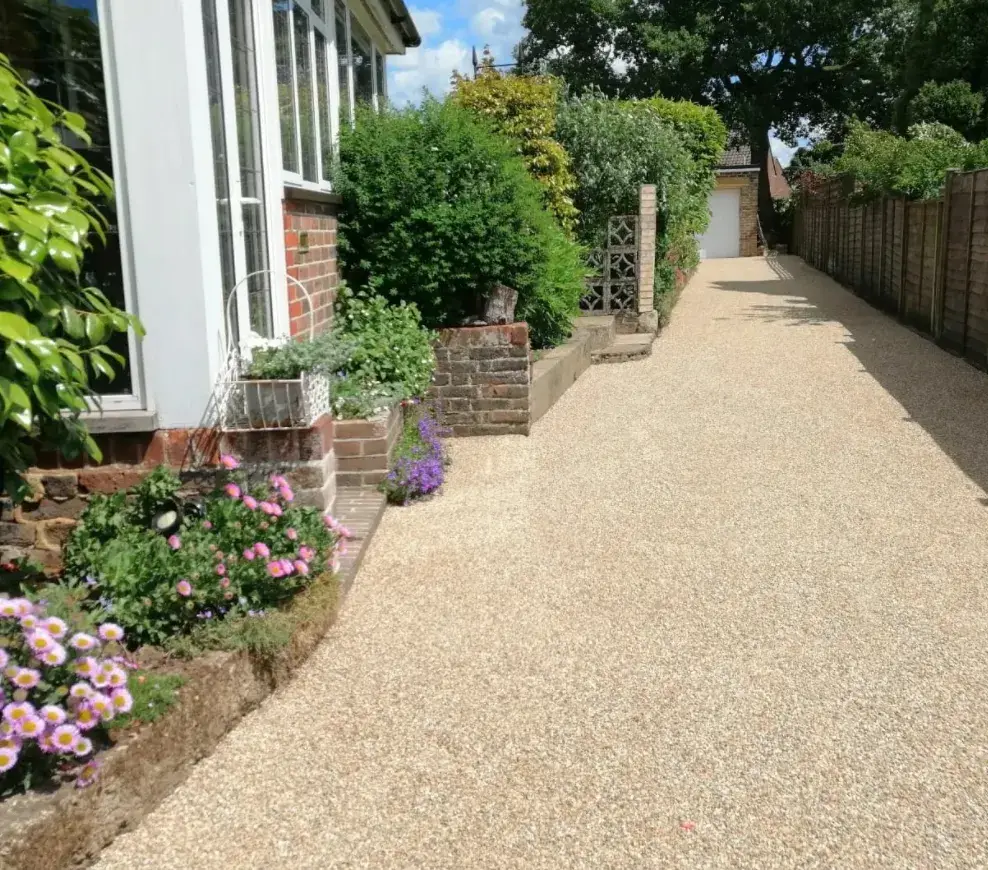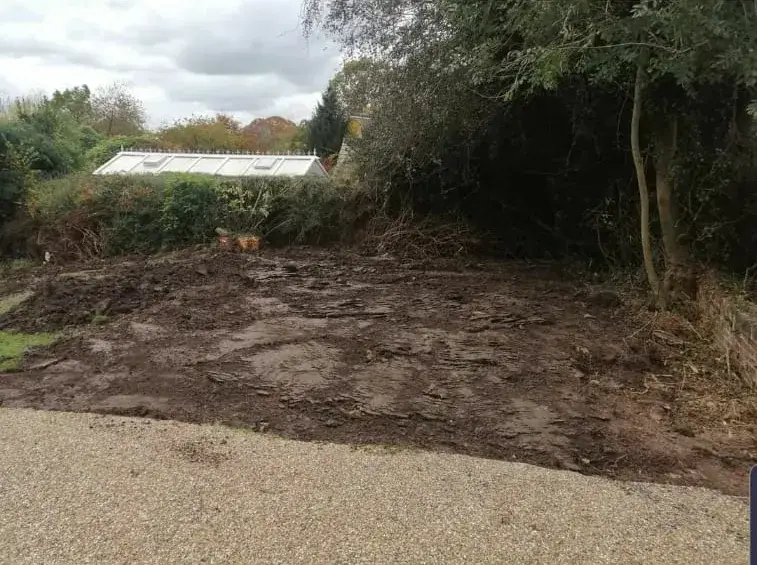What are the rules for a new driveway?
Do you need planning permission for a driveway?
If the driveway needs planning permission the specific circumstances are different. Generally, if a driveway is part of a new construction project, the details of that driveway will be included in the new house planning application. But in some cases planning permissions for driveways can be obtained without having to be granted, because it is permitted to build the property. Planning approval is already granted, so your driveway project can proceed unaffected. There are several situations where permitting development does not work in certain instances.
Driveway legislation
Driveway regulations help prevent floods from happening. All roads over 5 meter must provide a drainage system to allow water to flow through permeable areas. In this case the plans must be approved by the planning department. As Britain gets plenty of rain the problems could result in flooding caused by the drainage system of streets. However there are many environmentally friendly drainage solutions which suit all households and budgets. The following article outlines two ways of complying with driveway legislation.
The new driveway rules are likely to include restrictions on solid paved driveways in favour of green spaces. The Government is also considering creating ponds to allow water to soak into the ground rather than running off an impermeable driveway and into drains, where it can put pressure on sewage systems. The government is considering new rules that could require homeowners to have sustainable drainage as part of their plan to clean up waterways. A green light could lead to more green spaces at new developments and the end of large scale paving. Solid paved driveways do not allow water to soak into the ground and rely on drains instead. But this excess water can have a knock on effect on sewage systems , causing them to overflow and lead to drainage issues for the area and its surroundings.
When you will need planning permission
There’s no planning permit to install a car driveway. In some situations it is necessary to file a permit before you begin your driveway project. This situation may apply: If your driveway covers five square meters or does not have a permeable surface. This occurs since flood risk increases with surface area. In other words, you may want permeability on your driveway instead. Consult Infiltration pavers. When changing visibility. These may include the elimination or installation of trees, walls or gate.
We’ve highlighted the details within the legislation, to make the process of introducing a driveway to your own home as simple and stress-free as possible. When you will need to seek planning permission If you are looking to cover a front garden with watertight material on an area of over 5 square metres, you will need to seek planning permission beforehand. This also applies if the design of your driveway cannot control the rainwater from running into the road and drainage systems.
It’s less than five square metres in size or The material is permeable or The materials are laid so rainwater discharges onto a lawn or flower bed for natural drainage or You have installed a working soakaway and drainage channel If you cannot meet at least one of the above criteria, you will need to apply for planning permission. The legislation was created to prevent flash floods caused by excessive paving and inadequate natural drainage in many front gardens.
Permeable pavement
Permeable paving provides an ideal option for an entirely sustainable driveway without any further drainage or requiring planning permissions. The pavement is intended to enable rain water to enter the earth without overload in streets, thus decreasing flooding risks. A variety of designs are available to suit each property. Below is one example of the permeable paving we offer.
A popular choice for driveways is a combination of permeable block paving and permeable aggregates ; these look almost identical to standard block paving – and they also help you bypass applications for block paving planning permission. If rainwater drains naturally. If your driveway slopes towards a drainage ditch or flows into your garden/grass, you shouldn’t need to worry about planning permission. Applying for planning permission for your driveway In England, you will need to contact your ‘Local Planning Authority’ (LPA).
Do you need planning permission to turn your front garden into a driveway?
A new surface can be installed directly behind a house without planning authorization if a driveway is under 5 meter. The small front garden will suffice if we have two paved tracks for the wheels of the vehicles. The longer the driveway, the easier it is if you put in a permeable surface, e.g. gravel, permeable concrete block paving or porous pavement.
Planning Permission for Driveways: What you need to know
The demand for permission to construct an entranceway is now more prevalent than ever. Parking in public areas is a burden that affects most people mainly those who live in dense urban areas. However you cannot always guarantee a parking spot outside a home therefore a driveway will be an ideal option. In an increasingly electric automobile-oriented market electric vehicle designs have become increasingly popular. For homebuyers, acquiring proper permissions is important to get an efficient installation of driveways without any delays.
Permeable pavement
Permeable paving provides an ideal option for an entirely sustainable driveway without any further drainage or requiring planning permissions. The pavement is intended to enable rain water to enter the earth without overload in streets, thus decreasing flooding risks. A variety of designs are available to suit each property. Below is one example of the permeable paving we offer. Drivesett® Tegula® Priora® takes on the classic aesthetic which is focused on managing heavy rainfall sustainably.
Driveway drainage
There’s a lot of choices for domestic drainage so a professional installer such as Marshall’s Register Members can help you choose a good option. Driveline® drains was developed in our belief that our customers should be able to access their water efficiently.






